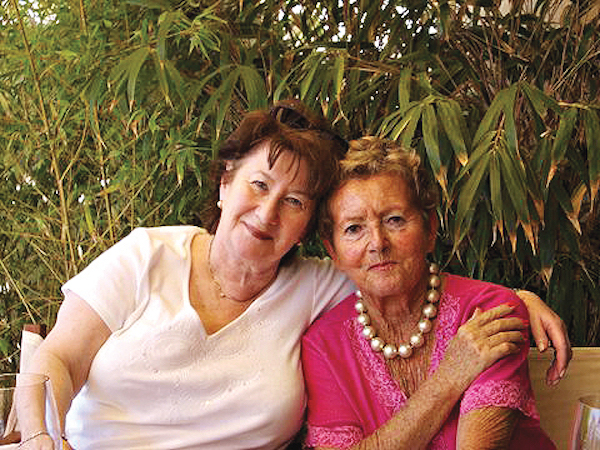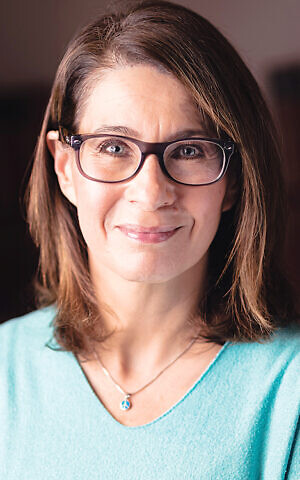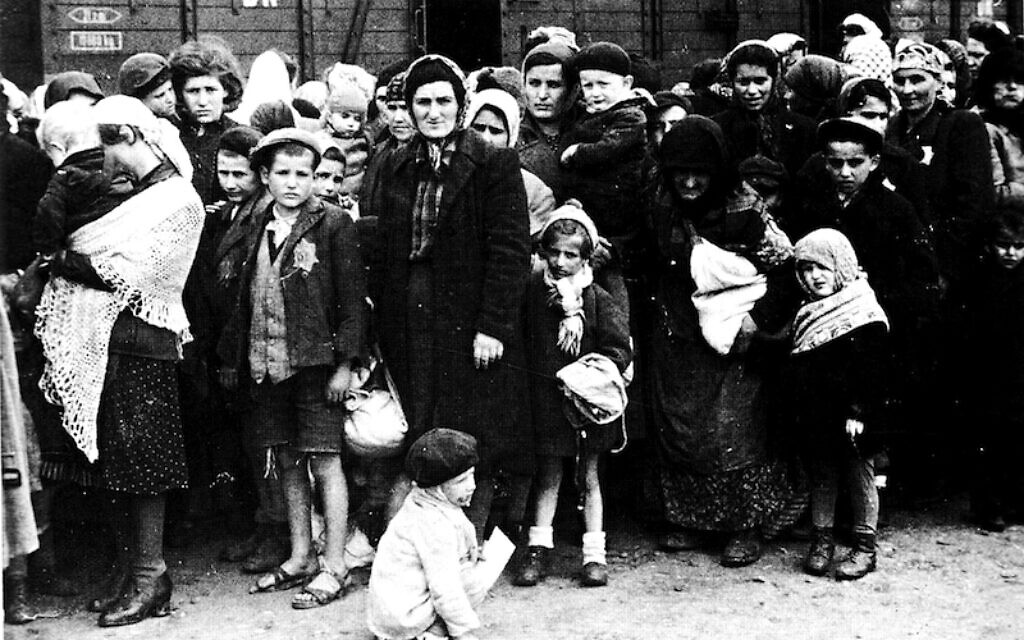‘Measles saved my mother from Auschwitz’
Alex Galbinski speaks to Debra Barnes about her new novel, which was inspired by her mother’s miraculous Holocaust survival
Debra Barnes always knew her mother, Paulette, had experienced a traumatic childhood and, like many other Holocaust survivors, she rarely spoke about it.
But for years a black-and-white photograph only served to feed Debra’s curiosity about what had happened to her mother during those years.
In the picture were her French-born mother, her siblings, including her twin, Annette, and their parents, most of whom had perished.
Get The Jewish News Daily Edition by email and never miss our top stories Free Sign Up
“Growing up, the Holocaust was something we didn’t discuss at home. It was an uncomfortable subject that was avoided.
“We didn’t read books or watch films, but you could say things have changed – now that’s all I do,” says Debra, who produces life story books for members of The Association of Jewish Refugees.
Debra’s debut young novel, The Young Survivors, is inspired by her mother and her siblings and is published today (Thursday).
Paulette and Annette, the youngest of the five Szklarz children, were born in 1938 in Metz, a French town on the border with Germany.
Their parents had moved there to escape persecution in their native Poland, but had started to experience antisemitism in their adopted homeland.
Having been forced to flee Metz alongside other Jews, they were soon arrested and deported. In the summer of 1943, the siblings were separated, with the twins and one brother sent to a Jewish orphanage and then a second in the suburb of Louveciennes.

They remained together until July 1944, when orders came to deport all the children to Auschwitz. It would prove to be the last convoy from France, just three weeks before Paris was liberated.
While her twin and older brother were murdered on arrival in the gas chambers, Paulette’s subsequent survival was nothing short of miraculous. The six-year-old first avoided deportation, because she had been taken to hospital to recover from the measles.
Then, when the Gestapo attempted to take her as well, Paulette was hidden by doctors, before spending the rest of war concealed by nuns in a convent.
Her inspirational story of survival provided the background to Debra’s novel, The Young Survivors, which tells the journey of the five Laskowski children, whose parents are abducted in the night, before losing their home, their Jewish community and each other.
It weaves in many stories that Debra, 56, who studied journalism, was personally told and learnt about while researching the book.
“I thought it was such a powerful story – this was the first time my mother and Annette were apart; they were without parents, they were each other’s rock and had been together the whole time,” she says.
“For them to be separated and for that to happen, it’s just heart-breaking. It must have been such a burden of a guilt on my mum and I think that’s another aspect of the story that makes it so special.”

The Edgware and Hendon Reform Synagogue member keenly understands the trauma felt by the second generation.
After the war, eight-year-old Paulette moved to England, where her maternal aunt lived. As an adult, Paulette had a happy family life, explains Debra, but something wasn’t quite right.
“I don’t think my sister and I realised it at the time, but now we are mothers ourselves, we can see our relationship with our mum was complicated, despite growing up in a happy, loving environment. I think it’s something many of the second-generation experience.
“I grew up thinking, ‘I can’t upset my mum, she’s been through so much already, I’ll do whatever I have to, to make sure she’s happy’ – and that becomes a bit of a burden and quite a lot to carry.”

Following her mother’s death, Debra decided to research more into her family and subsequently write a book.
In 2006, Paulette had been reunited with Denise Holstein who, aged 16, had looked after the children at the orphanages and had survived Auschwitz herself.
They were put in touch after Denise’s Holocaust testimony appeared on the internet with a photograph of the pair. Denise appears as Jacqueline in Debra’s book, and she was able to fill in some of the missing details.
“Denise hadn’t known my mum was still alive; she thought all the children in the photograph had died,” explains Debra. “It was so positive to hear from her that the children didn’t know what was going on and were happy and played together.”
Debra was also motivated to shed light on the fate of the 75,000 French Jews who perished in the Holocaust and has dedicated her book to them.
“It was only in 1995 that the President of France, Jacques Chirac, admitted how the French had collaborated with the Nazis. I don’t think many know what happened in France and I wanted to bring it to people’s attention.”
The Young Survivors by Debra Barnes is published by Duckworth Books, priced £8.99 (paperback). Available now

Thank you for helping to make Jewish News the leading source of news and opinion for the UK Jewish community. Today we're asking for your invaluable help to continue putting our community first in everything we do.
For as little as £5 a month you can help sustain the vital work we do in celebrating and standing up for Jewish life in Britain.
Jewish News holds our community together and keeps us connected. Like a synagogue, it’s where people turn to feel part of something bigger. It also proudly shows the rest of Britain the vibrancy and rich culture of modern Jewish life.
You can make a quick and easy one-off or monthly contribution of £5, £10, £20 or any other sum you’re comfortable with.
100% of your donation will help us continue celebrating our community, in all its dynamic diversity...
Engaging
Being a community platform means so much more than producing a newspaper and website. One of our proudest roles is media partnering with our invaluable charities to amplify the outstanding work they do to help us all.
Celebrating
There’s no shortage of oys in the world but Jewish News takes every opportunity to celebrate the joys too, through projects like Night of Heroes, 40 Under 40 and other compelling countdowns that make the community kvell with pride.
Pioneering
In the first collaboration between media outlets from different faiths, Jewish News worked with British Muslim TV and Church Times to produce a list of young activists leading the way on interfaith understanding.
Campaigning
Royal Mail issued a stamp honouring Holocaust hero Sir Nicholas Winton after a Jewish News campaign attracted more than 100,000 backers. Jewish Newsalso produces special editions of the paper highlighting pressing issues including mental health and Holocaust remembrance.
Easy access
In an age when news is readily accessible, Jewish News provides high-quality content free online and offline, removing any financial barriers to connecting people.
Voice of our community to wider society
The Jewish News team regularly appears on TV, radio and on the pages of the national press to comment on stories about the Jewish community. Easy access to the paper on the streets of London also means Jewish News provides an invaluable window into the community for the country at large.
We hope you agree all this is worth preserving.
-
By Brigit Grant
-
By Laurent Vaughan - Senior Associate (Bishop & Sewell Solicitors)
-
By Laurent Vaughan - Senior Associate (Bishop & Sewell Solicitors)
-
By Laurent Vaughan - Senior Associate (Bishop & Sewell Solicitors)
-
By Laurent Vaughan - Senior Associate (Bishop & Sewell Solicitors)






















